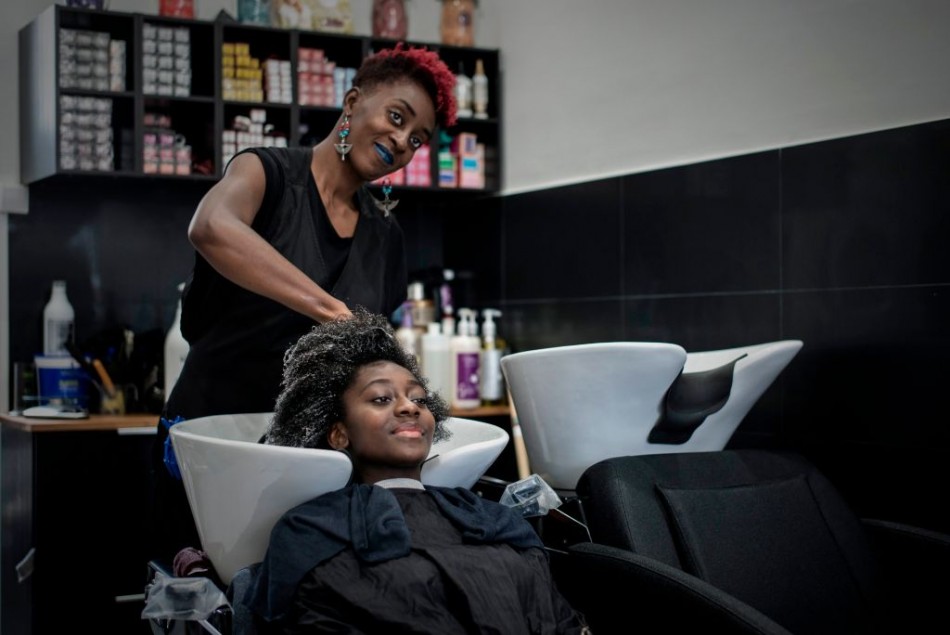FDA Targets To Ban Formaldehyde in Relaxers: Risks to Black Women Highlighted

In a pivotal move reflecting growing health concerns, the Food and Drug Administration (FDA) has announced its intention to ban formaldehyde in hair relaxers.
This decision, primarily impacting Black women, brings to light the health perils intertwined with chemical hair straightener usage.
Formaldehyde in Hair Relaxers: A Silent Threat
Formaldehyde, a colorless, pungent gas, lurks in numerous household products, including many hair relaxers.
Historically, the FDA has dissuaded the use of hair-straightening products with this chemical due to its toxic nature.
Prolonged exposure can provoke a range of health issues, from respiratory irritations to more severe conditions like myeloid leukemia.
But the FDA ban on formaldehyde isn't just about the direct inclusion of this chemical. Various compounds in hair products can metamorphose into formaldehyde when exposed to heat, like methylene glycol.
Even products that don't directly list formaldehyde might contain its water-dissolved variant, formalin, hiding its presence from the average consumer.
The looming challenge? The current regulatory framework doesn't mandate FDA approval for cosmetic products, except color additives.
This means consumers, particularly Black women, often remain in the dark about the full array of chemicals they expose themselves to.
Research Speaks: The Dangers of Chemical Hair Straighteners
Recent academic endeavors offer illuminating insights into the risks of chemical hair straighteners.
A noteworthy study by the National Institutes of Health elucidated a stark reality: women who frequently used these straighteners faced a doubled risk of uterine cancer.
While the study didn't pinpoint specific brands or ingredients, the inclusion of chemicals like formaldehyde was identified as a potential risk enhancer.
Another pertinent research initiative, the Black Women's Health Study by Boston University, underscored the heightened risks for postmenopausal Black women using hair relaxers long-term.
Kimberly Bertrand, the research's main architect, voiced concerns over the lax federal oversight of these products, leading to uninformed users.
Alarmingly, many hair relaxers contain endocrine disruptors, which, when applied, can be absorbed into the bloodstream, affecting the body's hormonal system.
The repercussions? Early puberty, fibroid tumors, and even infertility
In a subsequent study from the American Journal of Epidemiology, a troubling link was observed between the use of hair straighteners and diminished fertility rates among women.
Read Also: Michigan's 17-Year-Old Loss Spurs FBI Online Sextortion Ring Investigation
Legal and Legislative Undertakings: A Clarion Call for Safety
Amidst the mounting concerns, a series of legal challenges have emerged.
Numerous Black women have taken cosmetic giants like Revlon and L'Oréal to court, alleging that these companies' hair relaxers triggered severe health adversities, encompassing uterine and breast cancers.
In some instances, plaintiffs have also ascribed infertility to these products.
Echoing these concerns, Reps. Ayanna Pressley and Shontel Brown penned an open letter earlier this year, prodding the FDA for a deeper dive into the potential carcinogens in chemical hair straighteners.
Their letter was not just a call for health and safety but also a commentary on the societal pressures compelling many Black women to resort to these products, often unaware of the lurking risks.
This proposed FDA ban is in sync with broader legislative endeavors like the CROWN Act.
This act seeks to obliterate discrimination rooted in hair texture, an initiative that has gained traction as over 20 states have adopted it since its inception in 2022.
The FDA's proposed ban signals an evolving consciousness about the latent dangers associated with hair products.
As this awareness burgeons, there is a growing hope for rigorous regulations and a push towards empowering consumers, especially Black women, with the knowledge to make safer beauty choices.
The undercurrent? A world where beauty is both celebrated and safe.
Related Article: Maui Wildfire Aftermath: Lahaina Schools Reopen Amidst Parental Concerns
© 2024 ParentHerald.com All rights reserved. Do not reproduce without permission.
